Search Images
Browse Content (p. 1302)
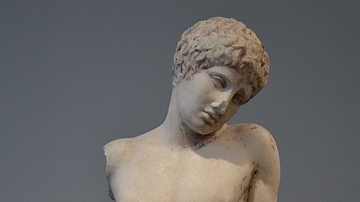
Image
Statue of Narcissus
Marble statue of Narcissus, from Gaeta (Italy), Roman copy of the 4th century CE. The statue type of the standing naked boy leaning with his left arm on a pillar is interpreted as the beautiful youth Narcissus who sees his own reflection...
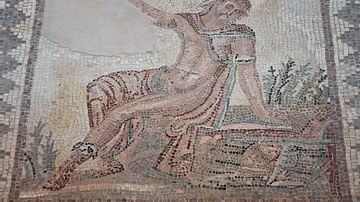
Image
Narcissus Mosaic
Mosaic of Narcissus, from the House of Dionysos, late 2nd / early 3rd century CE, Paphos Archaeological Park (Nea Paphos), Cyprus.
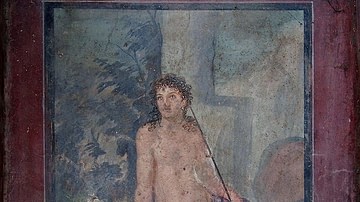
Image
Narcissus Fresco, Pompeii
Fresco depicting the myth of Narcissus, in the House of Octavius Quartio at Pompeii.
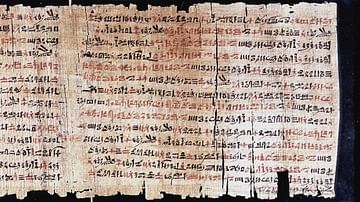
Image
Papyrus Chester Beatty VI
Dated to the New Kingdom (c. 1570 - c. 1069 BCE), and specifically to c. 1200 BCE, the text is written in demotic script and is the oldest treatise on anorectal disease (affecting the anus and rectum) in history.
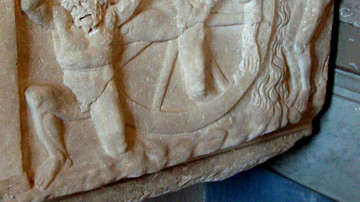
Image
Sisyphus, Ixion and Tantalus
A Roman sarcophagus showing three infamous figures from Greek mythology who were punished for their impiety: Sisyphus (who had to forever roll a stone up a hill), Ixion (who was tied to an ever-spinning wheel), and Tantalus (who could never...
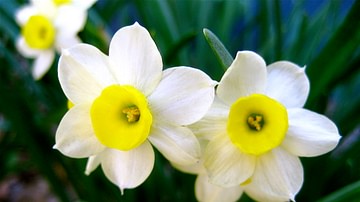
Image
Narcissus Flowers
Narcissus flowers, often called daffodills. In Greek mythology the handsome youth Narcissus fell in love with his own reflection and was transformed into the flower when he died.
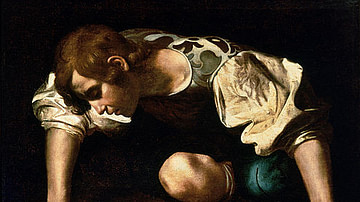
Image
Narcissus
A 16th century CE oil painting by Caravaggio depicting Narcissus the handsome youth of Greek mythology who fell in love with his own reflection. (Galleria Nazionale d'Arte Antica, Rome)
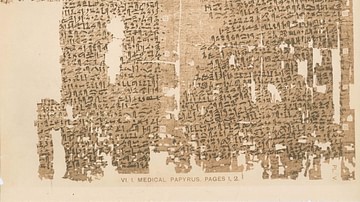
Image
Kahun Gynaecological Papyrus
The Kahun Gynaecological Papyrus (c. 1800 BCE) deals with conception and pregnancy issues as well as contraception. It is kept in the Petrie Museum of Egyptian Archaeology.
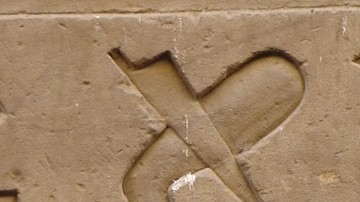
Image
Knife & Leg Relief, Temple of Edfu
A detail of a relief at the Temple of Edfu, Egypt showing a knife and leg. Ptolemaic Period.
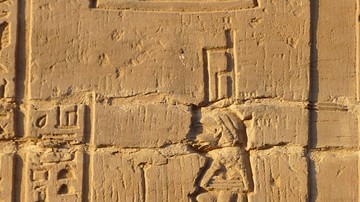
Image
Egyptian Woman Giving Birth
A relief from the Temple of Kom Ombo of a woman sitting on a birthing stool. Ptolemaic Period.